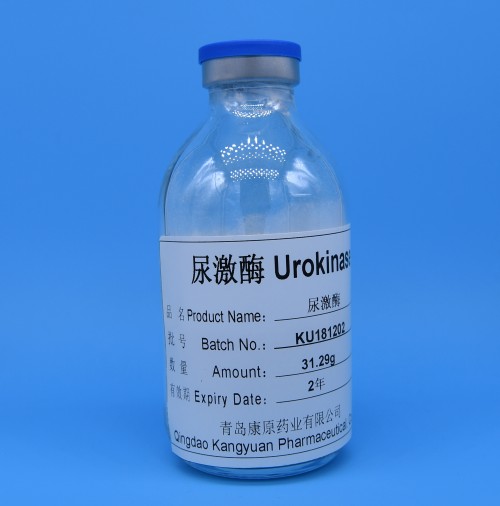Kangyuan Company is a professional Manufacturer of Hormone API,
specializing in production, which is your best choice. Here's an introduction to
the Urokinase Manufacturer.
Urokinase is a biological protein that helps thin the blood and break down
clots. Hospitalized patients or people with suspected clots are often advised to
take a dose of urokinase to relieve symptoms and reduce the risk of fatal
complications. The drug requires controlled use by doctors or trained nurses,
and patients are monitored for adverse reactions during treatment. Persistent
side effects are uncommon, but dizziness, bruising and bleeding, and chest pain
may occur.

The kidney itself produces and releases a natural urokinase that stimulates
blood circulation and clears obstacles. And medicinal urokinase can be used as a
supplement to protect against pulmonary embolism and dangerous clots outside the
lungs. Its anticoagulant properties kick in as soon as the injection enters the
bloodstream. Treatment is most effective at the onset of embolic symptoms such
as shortness of breath, cough and chest pain.
After a clot is confirmed, a solution made by mixing water, sodium chloride
and urokinase powder is injected into a clean bag connected to the drops and
catheter. The doctor injected the solution into the major arteries in the arm.
The exact amount provided also depends on the patient's age and weight. If the
problem cannot be resolved within a few hours, the injection dose or rate may
need to be increased.
Mild side effects of urokinase are more common. After the injection,
patients may experience dizziness, dizziness and nausea. Some people may also
experience headaches, difficulty breathing and swelling. Because urokinase
affects blood viscosity, patients can also become prone to bruising, increased
menstrual bleeding and nosebleed. In addition, close observation during
treatment can often prevent internal bleeding problems.
Urokinase can interact with other medications, so it's important to tell
your doctor what medications you're taking. Aspirin, anti-inflammatory drugs and
other blood thinners can reduce efficacy or lead to potentially serious
complications of a heart attack or stroke. With appropriate precautions, most
patients respond well to treatment and their symptoms return completely to
normal.